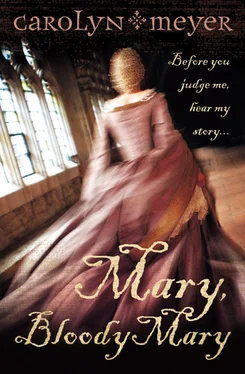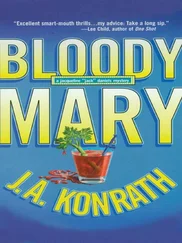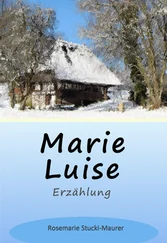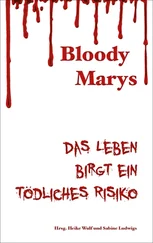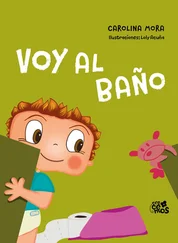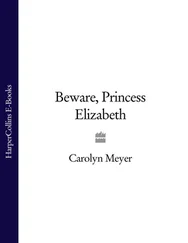“Perhaps he won’t find me to his satisfaction after all,” I said hopefully to Salisbury.
“Perhaps, but that is improbable, madam,” said Salisbury. Her face, plain as a plank, was as serene as ever. “The French king requested a portrait, which your father sent him, nicely presented in an ivory box with the Tudor rose carved upon the cover. King Francis much liked the sweet countenance he saw therein.”
How infuriating! “Salisbury, why must it be this way? if I had asked for his portrait, to see if he pleased me, would I have got it?”
Salisbury laughed. “Unlikely. That is not the way of this world.”
“Well, it should be,” I grumbled, although I knew she was right.
THE FESTIVAL honouring Saint George, the patron saint of England, commenced with an evening banquet. This would be my first glimpse of the man to whom I would be betrothed. As King Francis entered the Great Hall with a trumpet fanfare, I could make out that he was nearly as tall as my father but much thinner, save for a little round belly. Unfortunately, he was seated at one end of the king’s table, and I at the other. I have always been shortsighted, and at a distance I could not see his features clearly. All I could make out were his white hands fluttering about like startled pigeons. But I could hear him — he had a laugh like a braying donkey.
As I was peering towards him, trumpeters announced the first course: two dozen dishes that included frumenty with venison; salted hart; roast egret, swan, and crane; lamprey; pike; heron; carp; kid; perch; rabbit; mutton pasties; and baked quinces. The second course followed with as many dishes — crayfish, prawns, oysters, conger eel, plover, redshanks, snipe, larks baked in a pie, boiled custard, and marchpane.
The custom, as Salisbury had taught me, was to have only a taste, a morsel of this, a titbit of that. It was usually a hard custom to observe, especially when the prawns and oysters appeared. Even though I was very fond of these delicacies, precisely the dishes that Salisbury would not allow me at home, when I caught sight of the white hands flying about at the other end of the table and heard the braying laughter, I lost my taste even for prawns. Imagine having to live with this for the rest of my life! I found that I could scarcely swallow.
The banquet concluded with the presentation of a grand dessert, a replica of Noah’s Ark, nearly three feet tall and made entirely of sugar. A procession of every kind of animal, both real and imaginary, moulded of almond paste, paraded up the gangplank of the sugar boat. On the deck stood a miniature couple, which I took to be Noah and his wife. Then my father pointed at the figures and called out loudly, “Look you! The king of France and our own dear Princess of Wales, greeting their loyal subjects!”
The company sent up a cheer. As was expected of me, I lowered my eyes and smiled, but I wanted nothing more than to run from the table.
When the feasting ended, it was time to present King Francis and his courtiers to my mother and me. This was the moment I had dreaded. The courtiers came first, speaking to me in French, Latin, and Italian. (“Stupid questions,” I complained later to Salisbury. “Asking me how old I am in three different languages.”) I replied easily, but my attention was on King Francis, who moved closer and closer. I could now clearly see his rheumy eyes and long beak of a nose.
Then the French king bent over my hand and kissed it wetly. I nearly gagged. “The jewel of England,” my father told Francis proudly. “My pearl of the world.” How could my father do this to me?
AFTER THE BANQUET Henry entertained his French guests with a bearbaiting. I was seated beside my father as an enormous blind bear called Jack was led into the bear ring to cheering and applause. The king’s bearward let loose a pack of dogs. Jack struck out sightlessly and with a swipe of his mighty paw managed to kill the first two mastiffs that rushed at his throat. Several more dogs were released into the ring, and soon bear and dogs were bloody and dazed. Jack staggered around the ring, his fur matted with blood, stumbling over dead and dying dogs. The noise of howling dogs and roaring bear and cheering spectators was deafening, the stench of blood sickening. The bearward looked up at my father, the king, for a signal.
“What shall it be, my darling princess?” my father asked. “Is it life or death for poor old Jack? You must say!”
I was quite dazed from the gory sight. “I say let him be killed!” I declared in a trembling voice, knowing that was what my father wanted me to say but wishing with all my heart I had the power to save the bear’s life.
“Well said!” my father shouted. He made a sign to the bearward, who sent in one last dog to lunge at the wounded bear’s throat.
I watched the huge animal fall and expire, and I glanced at my betrothed, King Francis. His hands still fluttered aimlessly, although he looked a bit pale. At least his donkey bray was silenced.
THREE DAYS AFTER the banquet, I stood stiffly between King Henry and Queen Catherine at the betrothal ceremony, dressed in the new green and white silk gown. The golden robe trailing from my shoulders was so long and heavy that I required six attendants to carry it. So many sparkling necklaces were draped around my neck that I thought I would choke. Francis leered at me and slipped a diamond and ruby ring on my finger.
How much of this must I endure? I wondered, and again I felt cramping and nausea. Tears might have gathered in my eyes if I had allowed them, but I had been trained not to weep in public. “Ista puella nunquam plorat,” my father used to boast in Latin as he carried me around the Great Hall: “This girl never cries.” He didn’t know how much I cried when I was alone.
That evening there was another banquet, even more lavish than the one before. When the meal ended, the king signalled me to leave the royal table and prepare for the masque. This was another of my father’s ideas; he loved dressing up in the most elaborate outfits the royal costumer could devise. He had ordered me and seven ladies of my mother’s court and seven court gentlemen to be costumed, like him, in attire suggestive of the Far North. The fur-trimmed costumes were to my liking, and I truly enjoyed dancing. Since my arrival at Greenwich, my dancing tutor had rehearsed me and the ladies in our steps until we all knew the dance perfectly.
It was during these rehearsals that I had noticed a particular lady-in-waiting in my mother’s court. The lady’s thick black hair, gleaming like a raven’s wing, was left to fly wild, while other women tucked theirs modestly beneath a snood or coif. Her eyes were shiny and black as onyx, skin pale as milk, body thin and supple as a willow. A black ribbon circled her neck with a large diamond at her throat. She stood out among the group of rosy-skinned ladies with their pale blue eyes and golden tresses. Forty-nine ladies-in-waiting in my mother’s household wore pretty bright-coloured gowns, but this one dressed all in dramatic black and white.
The lady’s name was Anne Boleyn. I had learned by eavesdropping that she was the daughter of England’s ambassador to the French court, and she had grown up in France. Soon after she and her sister returned from France, my mother had invited them to join her court. Anne spoke French in a playful, mocking manner, quite different from the formal French of my tutors. She was witty and clever; her frequent, trilling laughter attracted everyone’s attention. She was not of royal blood — she was called simply Lady Anne — and yet she behaved as though she were royalty. I thought her fascinating.
The masque began. I led the seven ladies, including Anne, out of a make-believe ice cave, hung with garlands of greenery, and on to a low platform. There we were joined by eight men swirling long fur capes. The velvet half mask that hid King Henry’s eyes did not hide his identity — he was always the tallest man in any crowd, standing well above six feet. When the dancers were paired off as planned, the masked king held out his hand to me to dance the stately pavane. But as we executed the complicated steps, I noticed that my father’s eyes were not fixed on me but instead followed the black-haired dancer. There was an eagerness in his look that I had never seen there before, and it troubled me.
Читать дальше
